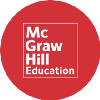How can we boost 21st century skills?
With the rapid rate of change in today’s economy, it’s difficult to predict the future of the job market. However, by one estimate reported by the World Economic Forum, 65%* of school-age children will end up working in jobs that don’t currently exist today. In this fast-paced environment, students need to adapt and prepare for the future workforce and for a highly competitive employment market.
What Are 21st Century Skills?
Boston Consulting Group believes that when it comes to human capital and talent, there is currently a gap in skills needed for the global economy to thrive. They estimate that this gap stands to cost “a stunning $10 trillion” across 25 of the world’s largest economies if not addressed. In a white paper entitled New Vision for Education: Fostering Social and Emotional Learning through Technology, Boston Consulting Group and The World Economic Forum identified the key competencies and character qualities essential for the future workforce.
· The competencies they identified were: critical thinking and problem solving; creativity; communication and collaboration.
· The character qualities were: curiosity; initiative; persistence; adaptability; leadership and social & cultural awareness
How to Close the Gap
Tomorrow’s entrepreneurs, innovators and leaders must have mastery of these vital soft skills in order to achieve their potential. So important is it to close the skills gap that McGraw-Hill Education and The Chartered Association of Business Schools hosted a forum of thought leaders to discuss how those in education and industry can support growth of these 21st century skills.
Some of the key points that this group of experts identified included the importance of educators embodying the 21st century skills themselves, the value of promoting digital learning and the need to create dynamic and engaging learning spaces that foster collaboration and discussion. The importance of building meaningful work experience was also deemed to be essential.
The key findings can be read in detail in the resulting Partnerships for 21st Century Skills White Paper
We want to start an ongoing conversation about 21st century skills and we’d love to hear your thoughts and experiences. Next time we’ll explore whether higher education or industry is providing a better solution when it comes to bridging the skills gap.
